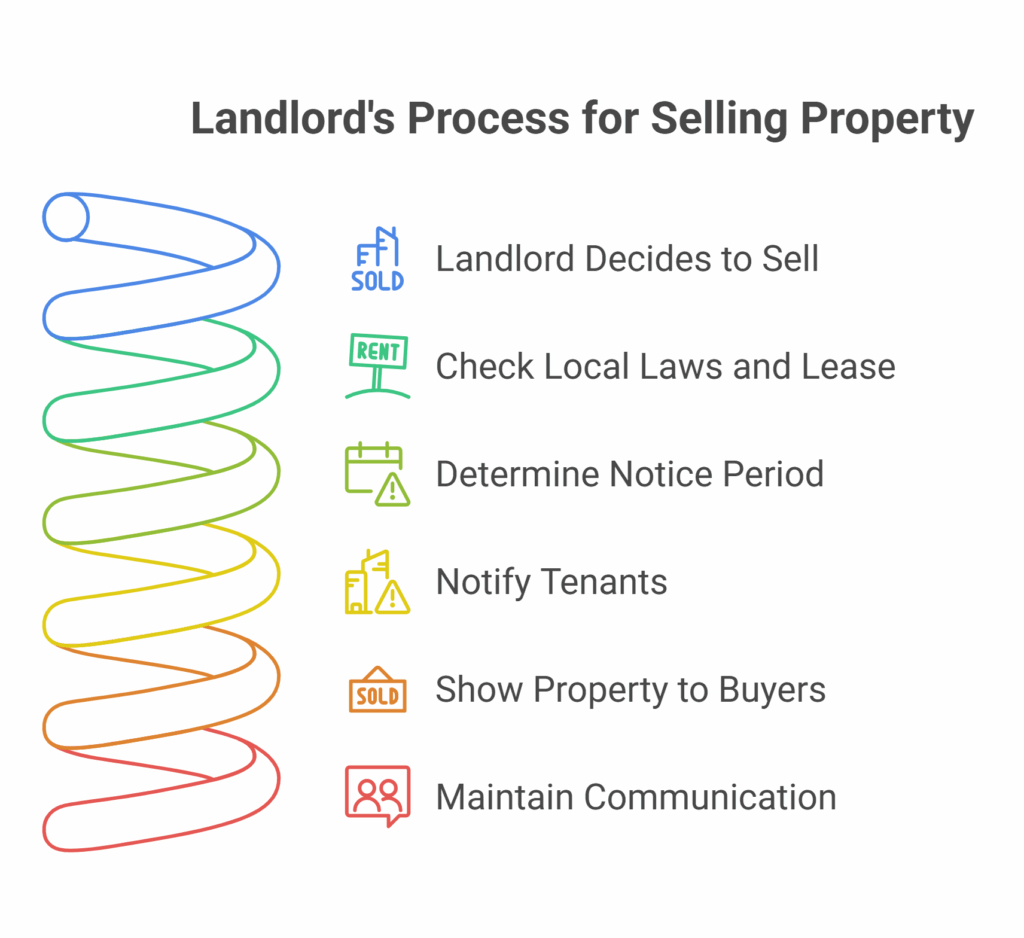Quick Answer: How Much Notice Does a Landlord Give When Selling Property?
How Much Notice Does a Landlord Have to Give When Selling the Property? Generally, the notice period depends on state and local laws, as well as lease agreements. In most cases, landlords must provide reasonable notice—often 24 to 48 hours—before showing the property to potential buyers.
However, selling doesn’t automatically end a tenant’s lease; tenants usually retain the right to stay until their lease expires. Clear communication and proper notice protect both the tenant’s rights and the landlord’s obligations.
Now let’s dive deeper.

Key Factors That Determine the Notice Period
- The particulars of a lease: The lease stipulates all the rights and responsibilities that both sides are obliged to honor. If there are exact rules on the forms of notice, they must be strictly observed by the landlord.
- Lawyering state-wise: State legislation for tenant rights, which is applied when selling property varies. In a few states, the tenants need to be given written notice, while in some others, tenants have more special protection.
- Type of Lease: If the tenant is a fixed-term leaseholder, they usually have the right to remain on the property until the contract is terminated. Here, month-to-month tenants receive notification to vacate their premises after 30 days to 60 days, depending on local laws.
- Vacant or Occupied Sale: In a scenario where sales are executed, with the tenant’s property occupying it, the said landlord prefers this option as it would usually result in a quick sale if the buyer is an investor. However, if the new owner wanted the place empty, then there would be a demand for the tenant to move.
Selling a House With Tenants: What Are the Legal and Ethical Considerations?
Disposing of a property where bit holds tenants within is not just some simple paperwork; it takes due diligence and respectful dealings to avoid conflict. By keeping communication open and transparent with tenants, they enjoy their due respect, and it is imperative to inform and ensure that both landlords engaged in the process are protected under their ‘Best Practice.’
1. Giving Proper Written Notice
By most state laws, landlords usually have to give written notice to tenants before putting the house up for sale. Although a notice requirement may not have been mentioned in the rental lease, tenants should have enough time to prepare for a sale and prepare for all property showings.
2. Arranging Showings Respectfully
The owners cannot just ring the bell and bring a potential buyer without notifying the tenant (unless they like confrontations). The notice about the showcasing should be well in advance, and the showings should always be arranged for reasonable times. In most states, a landlord must leave the property that was up for sale within 24 to 48 hours of notice of intention to inspect.
3. Honoring the Lease Agreement
Although the landlord owns the house, the tenant may hold a fixed-term lease option to continue residing there until the lease expires. The new owner is obliged to fulfill the lease signed by the original landlord, while negotiations for termination of the lease might also be feasible with a tenant in cases designed to grant compensation or bonus in certain instances.
4. Tenant Rights During a Sale
Even if a landlord is eager to sell, tenants have rights. Some key rights include:
- Remaining in the home if their lease is still active.
- Receiving proper notice before showings or inspections.
- The opportunity to negotiate with the new owner for continued tenancy.
- The right to challenge unlawful eviction attempts.
What Happens When a Tenant Refuses to Leave?
An uncooperative tenant, or one who simply refuses to vacate after a standard notice, is not entitled to be forcibly evicted from the premises; an illegal eviction would be individual against the tenant. Now, the landlord would have to follow an established eviction process governing the same under the jurisdiction of the local laws. This may involve:
- Offering a cash-for-keys agreement (financial incentive to leave early).
- Filing an official eviction lawsuit if the tenant refuses to move after their lease ends.
However, the best approach is clear communication and negotiation, ensuring both parties are on the same page throughout the transition.
Selling the Property the Right Way: Best Practices for Landlords
If you’re a landlord planning to sell a rental property, here are some ways to make the process smooth and stress-free:
- Speak directly to the tenants and tell them about wanting to sell your home.
- It is advisable to take the help of a realtor who has experience in landlord-owned sales.
- A better idea would be to sell to those investors who are open to retaining the tenants.
- If a private possession is required, plan to help the tenants relocate by providing some useful incentives.
- Do well to respect the law; bypassing any legal recommendations would land you in hot waters.
Final Thoughts
Selling a rental property with tenants need not be a nightmare. Whether you need guidance on how much notice a landlord has to give a tenant when selling the property to work through the legal hurdles, would like to sell house fast El Paso, or else ensure a smooth transition for the tenant, we would assist. We specialize in helping landlords sell properties in a hassle-free way and make sure there is minimal patient pain.
Call us anytime at 713-561-5162 or connect with us on our website and we’ll lay out all of your options for your specific situation.
